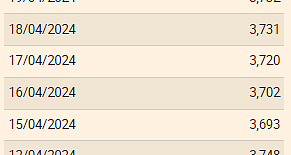Patrik Hall and Ulf Sandström proposes in his op-ed that the research councils must be closed for the university's best. They write in their article that ”much talk [instead] to rådssystemet leads to violent inefficiency...”, and that advice is mostly to keep the major universities under the arms.
I have a professorship at one of the major universities (Karolinska institutet), but is also active as a doctor and researcher at Örebro university hospital and 3 of my 5 graduate students are enrolled at the university of Örebro. Therefore, I believe I have the ability to small consider Hall/sandström's article from several perspectives.
1 Countries that provide the perplexity, to their universities/researchers, faculties have proved more effective. This quote Hall and Sandström an article by van den Besselaar and Sandström when they claim that research can't predict research success. But if you read the article it says: ”The selected applicants [the funding] have a much higher output in terms of papers” and ”The successful applicants also have a higher score on the various citation-based indicators than the non-successful ones”. This is the researcher's huvudfynd and it seems a little strange to use this as an argument for countries without the research councils would be more efficient (in addition to the fact that you want to put down the Swedish research council on the basis of a survey of 243 Dutch researchers who sought appropriations for fifteen years ago).
But even if Hall and Sandström does not really present any data on actual funding and ”efficiency” in his article, discussed this relationship in a report by Olle Häggbom for Sveriges Universitets - och Högskoleförbund 2014. In the report type Häggbom: ”The statistical analyses Ulf Sandström and Ulf Heyman is trying to do over the forskningsfinansieringssystemen is interesting but they can find no such context explaining the effektivitetsskillnader between the countries.”
the Question then becomes how Hall and Sandström can be argued that the research councils, leads to a ”violent inefficiency of the Swedish research”?
The one who must put things down in writing (apply for funding) are forced to sharpen their ideas, and confront the weaknesses in their project. In the long term, it increases the chances of a well done project.
2 A nuanced discussion about the actual effects. Here I agree with Hall and Sandström. A discussion of the competition is good. There are bad things to put the time in to apply for funding. But nobody can deny that the need to put things down in writing (apply for funding) are forced to sharpen their ideas, and confront the weaknesses in their project. In the long term, it increases the chances of a well done project.
Hall and Sandström says that it is ”foolhardy for Sweden as a research nation to continue to maintain this rådsbyråkrati”. Bureaucracy?? The Swedish research council had, according to its annual report, in 2017, the equivalent of 179 full-time employees. It can be compared with the 5,500 employees at the university of Stockholm.
3 Jävsförhållanden. Yes, there are jävsförhållanden in research. It is in order to minimise conflict of interest, as I örebroare/locals review of ALF applications from Umeå, and as my professorskollega at Karolinska institutet examines cancerfondsansökningar from Norway. We researchers want to be free in our review of others ' research.
Not infrequently uses research councils, foreign reviewer to the heaviest allocations, as illustrated by the fact that an applicant recently was to a research position because he, in contrast to the instructions written his application in Swedish (the reviewers was from the united states and England, they could not Swedish and therefore could not give credit to his application). Here it is difficult to see any närhetsmekanismer.
I do not believe that all the rules for disqualification are complied with, but as the examples above show, there is a quest among the research councils and other research funders (who use competition at the distribution of funds) to avoid a conflict of interest. How Hall and Sandström can believe that närhetsmekanismer would get less importance for that funds allocated by the universities themselves, and within their respective universities is a mystery to me.
I believe in free research, but as a taxpayer, I also want to have value for money and I have chosen the politicians that I have confidence in them.
4 Should politicians get to control the research through the research councils? Well, the question is not so simple. No one wants short-term solutions. But the fact is that, despite everything, is tax money via the research councils are funding the research. I believe in free research, but as a taxpayer, I also want to have value for money and I have chosen the politicians that I have confidence in them.
They want to use bibliometrics (”a corrective in the form of bibliometric monitoring ... is necessary in the context”). I believe in bibliometrics, however, bibliometrics is also a blunt instrument. In this example, Hall and Sandström gives they believe that the smaller universities at a disadvantage (”the [smaller institutions] receive only 4% of the allocation but has 11% of the publications”). But has not the bibliometric research has come further than that we are still just counting the number of publications?
what is the relationship between the appropriations and the science if we instead look at citations? And if that Hall and Sandström only counts publications - should we put the equal sign between an article in Nature/Science and a I J of Informatics? And how should bibliometrin catch up the factors ”interaction with society”, and research relevance? Bibliometrics have their clear merits, but cannot replace the externgranskning of applications.
An evaluation by the research councils, as well as how the universities themselves benefits from their research grants, would be good. But Hall and sandström's op-ed is thin on the argument that the Swedish research funding should change.

 The Euribor today remains at 3.734%
The Euribor today remains at 3.734% Germany: the trial of an AfD leader, accused of chanting a Nazi slogan, resumes this Tuesday
Germany: the trial of an AfD leader, accused of chanting a Nazi slogan, resumes this Tuesday New York: at Columbia University, the anti-Semitic drift of pro-Palestinian demonstrations
New York: at Columbia University, the anti-Semitic drift of pro-Palestinian demonstrations What is Akila, the mission in which the Charles de Gaulle is participating under NATO command?
What is Akila, the mission in which the Charles de Gaulle is participating under NATO command? What High Blood Pressure Does to Your Body (And Why It Should Be Treated)
What High Blood Pressure Does to Your Body (And Why It Should Be Treated) Vaccination in France has progressed in 2023, rejoices Public Health France
Vaccination in France has progressed in 2023, rejoices Public Health France Food additives suspected of promoting cardiovascular diseases
Food additives suspected of promoting cardiovascular diseases “Even morphine doesn’t work”: Léane, 17, victim of the adverse effects of an antibiotic
“Even morphine doesn’t work”: Léane, 17, victim of the adverse effects of an antibiotic MEPs validate reform of EU budgetary rules
MEPs validate reform of EU budgetary rules “Public Transport Paris 2024”, the application for Olympic Games spectators, is available
“Public Transport Paris 2024”, the application for Olympic Games spectators, is available Spotify goes green in the first quarter and sees its number of paying subscribers increase
Spotify goes green in the first quarter and sees its number of paying subscribers increase Xavier Niel finalizes the sale of his shares in the Le Monde group to an independent fund
Xavier Niel finalizes the sale of his shares in the Le Monde group to an independent fund Owner of Blondie and Shakira catalogs in favor of $1.5 billion offer
Owner of Blondie and Shakira catalogs in favor of $1.5 billion offer Cher et Ozzy Osbourne rejoignent le Rock and Roll Hall of Fame
Cher et Ozzy Osbourne rejoignent le Rock and Roll Hall of Fame Three months before the Olympic Games, festivals and concert halls fear paying the price
Three months before the Olympic Games, festivals and concert halls fear paying the price With Brigitte Macron, Aya Nakamura sows new clues about her participation in the Olympics
With Brigitte Macron, Aya Nakamura sows new clues about her participation in the Olympics Skoda Kodiaq 2024: a 'beast' plug-in hybrid SUV
Skoda Kodiaq 2024: a 'beast' plug-in hybrid SUV Tesla launches a new Model Y with 600 km of autonomy at a "more accessible price"
Tesla launches a new Model Y with 600 km of autonomy at a "more accessible price" The 10 best-selling cars in March 2024 in Spain: sales fall due to Easter
The 10 best-selling cars in March 2024 in Spain: sales fall due to Easter A private jet company buys more than 100 flying cars
A private jet company buys more than 100 flying cars This is how housing prices have changed in Spain in the last decade
This is how housing prices have changed in Spain in the last decade The home mortgage firm drops 10% in January and interest soars to 3.46%
The home mortgage firm drops 10% in January and interest soars to 3.46% The jewel of the Rocío de Nagüeles urbanization: a dream villa in Marbella
The jewel of the Rocío de Nagüeles urbanization: a dream villa in Marbella Rental prices grow by 7.3% in February: where does it go up and where does it go down?
Rental prices grow by 7.3% in February: where does it go up and where does it go down? Europeans: “All those who claim that we don’t need Europe are liars”, criticizes Bayrou
Europeans: “All those who claim that we don’t need Europe are liars”, criticizes Bayrou With the promise of a “real burst of authority”, Gabriel Attal provokes the ire of the opposition
With the promise of a “real burst of authority”, Gabriel Attal provokes the ire of the opposition Europeans: the schedule of debates to follow between now and June 9
Europeans: the schedule of debates to follow between now and June 9 Europeans: “In France, there is a left and there is a right,” assures Bellamy
Europeans: “In France, there is a left and there is a right,” assures Bellamy These French cities that will boycott the World Cup in Qatar
These French cities that will boycott the World Cup in Qatar Serie A: Bologna surprises AS Rome in the race for the C1
Serie A: Bologna surprises AS Rome in the race for the C1 Serie A: Marcus Thuram king of Italy, end of the debate for the position of number 9 with the Blues?
Serie A: Marcus Thuram king of Italy, end of the debate for the position of number 9 with the Blues? Milan AC-Inter Milan: Thuram and Pavard impeccable, Hernandez helpless… The tops and flops of the derby
Milan AC-Inter Milan: Thuram and Pavard impeccable, Hernandez helpless… The tops and flops of the derby Ligue 2: Auxerre leader, Bordeaux in crisis, play-offs... 5 questions about an exciting end of the season
Ligue 2: Auxerre leader, Bordeaux in crisis, play-offs... 5 questions about an exciting end of the season


















